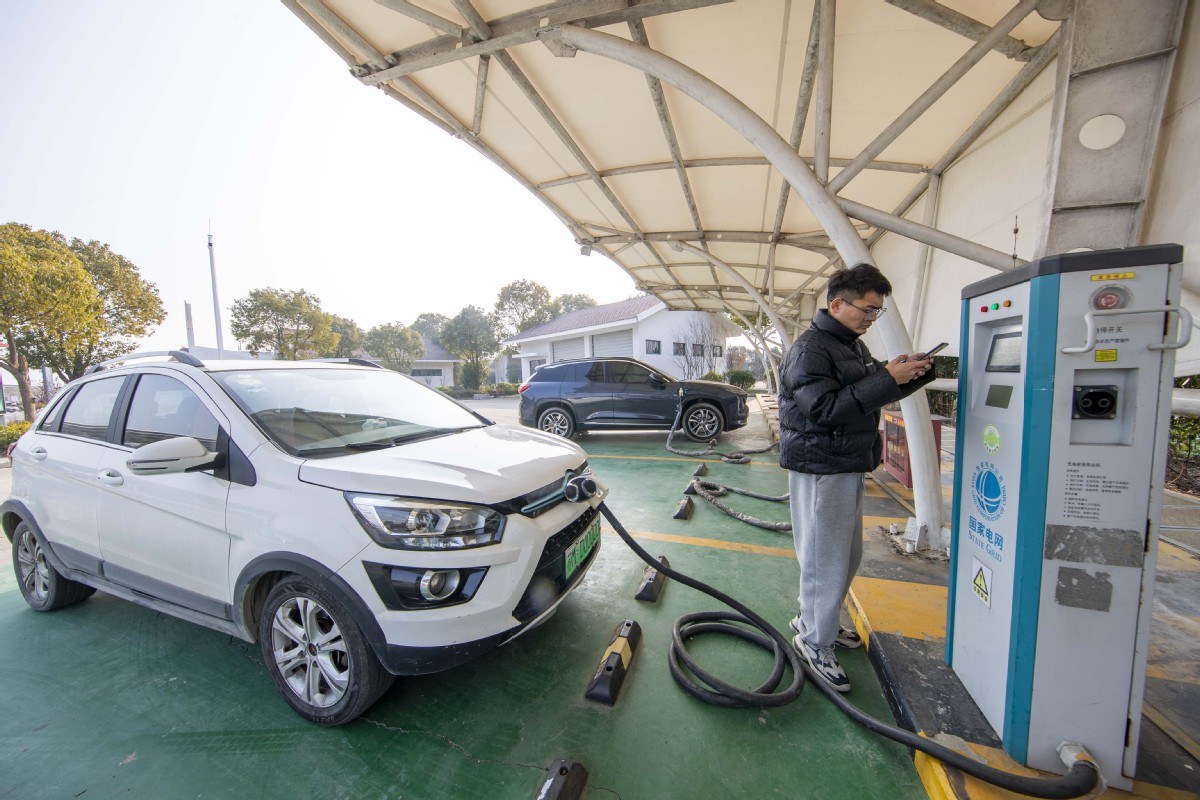China's EV makers get creative in sales push


China's booming electric vehicle market already boasts more than 300 manufacturers and is now taking some innovative approaches to help customers, according to two industrial experts.
Speaking at SXSW 2022 Conference in Texas, Graham Fotheringham, an EV strategy adviser for both the United States and China, said electric vehicles had a 15 percent market share in China and 4 percent in the US last year.
"In China's market, the rapid growth is based on (the) government's policy, planning, strategies and cooperation with the industries," Fotheringham said.
"The central government sets a very clear goal, supports the industry, suppliers, battery companies that really want to establish a true independent world-class market. It's an aggressive and well-executed plan to accelerate growth."
China pushes out many policies to direct people toward EVs. For example, it would take anywhere between a year to 25 years to get a license for a gasoline-powered car, but it is much easier to get one for an electric car.
In contrast, the US government sets policy largely around emissions, so it is up to the individual companies to decide what to do.
The rapid growth in China has enabled automakers to come up with innovative ways to solve the power issue, one of the core considerations for EV consumers.
Ganesh Iyer, global chief information officer at Shanghai-based EV automaker NIO, said running out of power is a major concern for EV drivers, so NIO has sought to give customers peace of mind as a luxury brand.
One service NIO provides is a battery swap. Enabled by more than 1,400 patented technologies, it allows a NIO owner to drive up to one of its swap stations and a fully charged battery can be automatically swapped in a few minutes "before the customer can finish a coffee break", Iyer said.
NIO has also come up with a solution for mobile chargers. A customer can use the NIO app to order power service. Within a few clicks on the app, a portable NIO power bank will show up on the spot to recharge the battery for the customer.
Iyer said the battery is the most expensive component in EVs, and NIO's battery subscription program helps to build a whole new business model.
Looking abroad
With success at home, some Chinese EV companies are eagerly looking toward the US market. However, Fotheringham said a successful experience in China might not translate to the US market.
Many Chinese customers can easily adapt to EVs because they have no prior car ownership, and there is a low price point for EVs with ranges below 160 kilometers.
However, customers in the US buy EVs more with a focus on technology and high performance. And with years of prior experience driving gas cars, they are slow to change their behavior. The young generation would be more receptive to EVs, but they do not have the money yet.
"The US will have to go through more transitional technologies, and hybrid will still be very popular for a long time to turn people away from gas engines," Fotheringham said.

































